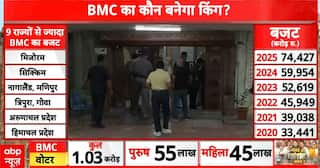PSU Bank Merger: From Chequebook To Money Transfer, Check How It Will Impact Customers From April 1
Depending on the merger bank, customers will witness a change in cheque book, cards, Indian Financial System Code (IFSC) and Magnetic Ink Character Recognition Code (MICR) change.

Are you one of the customers of eight public sector banks (PSB) which had merged with other bigger lenders? If yes, then there are certain things you need to keep in mind from next month onwards regarding cheque books and other transactions.
The merger of these eight banks include Vijaya Bank, Corporation Bank, Andhra Bank, Syndicate Bank, Oriental Bank of Commerce, United Bank of India, Allahabad Bank and Dena Bank.
Also Read | Alert! Link Aadhaar with PAN Before March 31 Or Pay Penalty Of Rs 1,000, Here's How To Sync Both IDs
Hence, depending on the bank, customers will witness a change in cheque book, cards, Indian Financial System Code (IFSC) and Magnetic Ink Character Recognition Code (MICR) change.
Chequebooks
It is to be noted that the cheque books of the banks getting merged will not be valid from April1, 2021. Hence, customers will have to get new chequebooks from the anchor banks (in which others are merged). For instance, as per the banks' websites, the chequebooks of Oriental Bank of Commerce and United Bank of India will remain valid only until 31 March. The two banks will be merged with Punjab National Bank.
Also, some banks may offer more time to customers as the Reserve Bank of India has allowed such banks to continue with the old chequebooks for another quarter or two. Consider the example of Syndicate Bank, where in customer can use their chequebooks until 30 June.
Besides, this it is important to track any developments in the bank regarding the use of chequebooks. Also, note that given post-dated cheques, you will need to replace them with a new one as soon as you get the new chequebook. It is advised that before the merger that you get an updated statement of the account for your record.
Money transfer
In case of money transfer, the IFSC and MICR code will change for some banks and remain the same for others. For example, in case of Union Bank of India, the account number remained the same, but the IFSC code changed. Note, every bank migration is different. Hence, you will have to check with your bank on these aspects so that you can accordingly alter the ECS instructions for loans and other payments including life insurance and mutual fund investments.
In case the ECS bounces, make sure you transfer the money online into your loan account to ensure that the lending bank doesn't put you on delinquent list.
Deposits and loans
In case there is a loan running from the merging banks, the anchor bank will streamline the process for you. Some cutomers can get updated terms and conditions and rates. If you are not yet aware then it is advised to check with the bank.
Considering the fixed deposits, banks will not change the interest rates mid-way, but the anchor bank may align the rates with theirs if it’s due for renewal.
In case of majority of banks, customers can continue to use their old cards till expiry until the new bank's cards are issued. Even though the merger may lead to few problems for customers, but make sure you note of all the development. Taking the bank to the task will be difficult and would require more efforts. You should be proactive now.





































